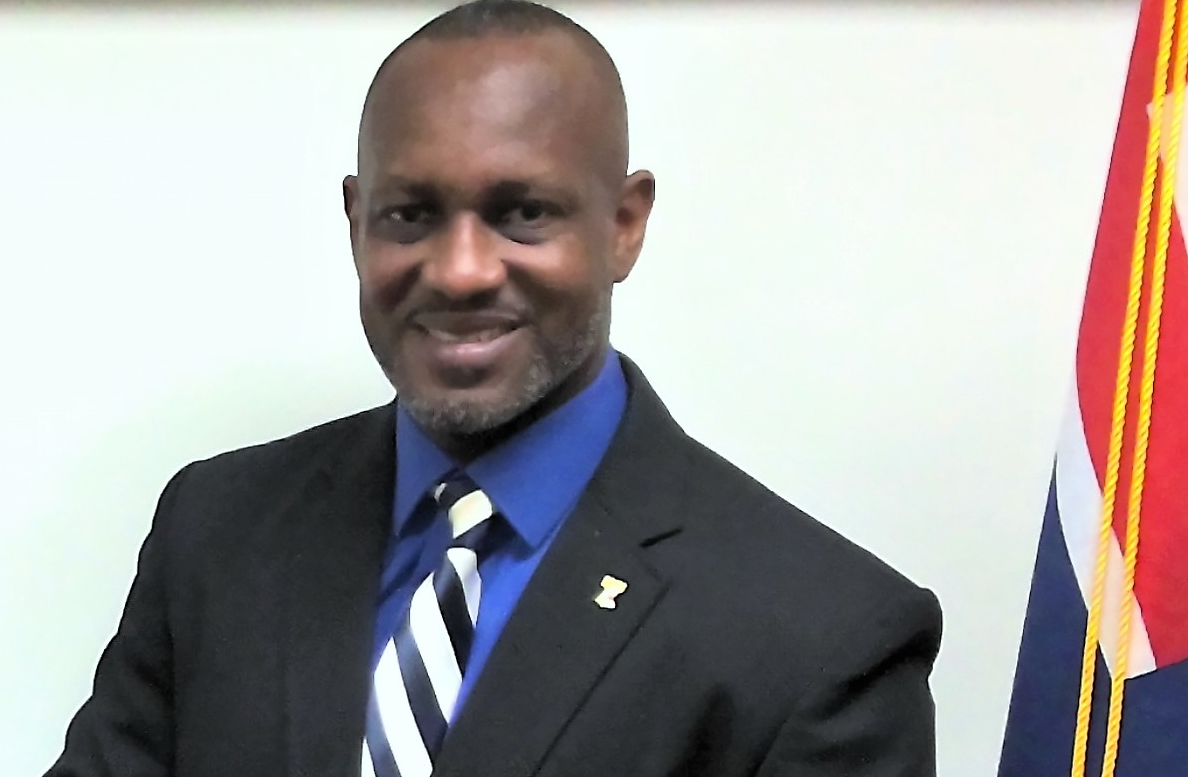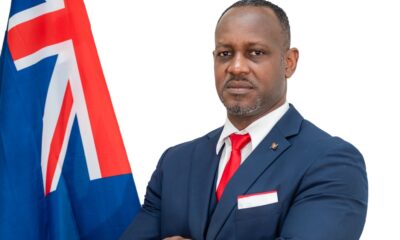By Deandrea Hamilton
Editor
#TurksandCaicos, February 2, 2023 – For some, the Progressive National Party government has failed to contain the illegal migration problem. To no one is this perspective more true than the People’s Democratic Movement which in a statement, hammered the government for inaction on stemming the flow of illegal boats from embattled Haiti and cited that now, there are a marked increase in human smuggling operations since the PNP took office.
“The PNP Government of the day seems to be clueless about how to tackle this problem. In the two years that they had come for the work, the country has seen no new plans, strategies, or methods for addressing the illegal movement of people, weapons, drugs, and contraband. On the contrary, we have seen an increase in illegal activities within our territorial waters,” said Edwin Astwood, Opposition Leader.
Over 500 Haitians have been caught so far in 2023 trying to enter the islands, illegally. Police have confirmed that some illegal boats have been missed by the coastal radar and marine branch, which brings unknown dangers to the British overseas territory.
some illegal boats have been missed by the coastal radar and marine branch, which brings unknown dangers to the British overseas territory.
The overwhelming influx is fueled by people seeking relief from a toxic cocktail of widespread infections and deaths as a result of Cholera; the vacuum left by the expiration of term in office of all its democratically elected leaders; the high cost and scarcity of food and the take-over of murderous gangs across the nation.
Astwood said the remedy needs funding and his party has the right strategy.
“The PDM has been working on a very ambitious strategic plan for “Stopping the Sloops”. This plan has a clearly defined vision and mission, with achievable objectives. The strategy was developed with a new and innovative way of stopping and detecting illegal entry into the Turks and Caicos Islands. It employs a multisectoral multiagency approach using new and very promising tactics.”
No details of this plan is shared by Astwood, but he does give clues about where there is grave concern; he slams the PNP for leaving smaller islands unprotected. He likened them to a magnet for the unscrupulous captains who use the lanes and lands for their often ill-fated, always nefarious and irresistibly lucrative voyages.
“For our Family Islands and communities border protection and security are extremely low, or completely absent, hence they also act as alternative unmonitored landing sites for these illegal boats.
We the PDM have been studying in much detail every aspect of this issue of illegal boats. Our Plan will coordinate our intelligence, interception, processing, and enforcement systems. Through increases in the critical staffing areas; increase policing of our waters; use of technology, including sensors, radar, and aerial assets, investments to modernize the ports of entry, and stronger partnerships and information sharing, we the PDM desire to create a safer, more secure, and more efficient border environment of the entire Turks and Caicos Islands.”
Since the statement was issued on February 18, there has been no formal reply from the PNP Administration. The issue of illegal migration once again proving to be politically polarizing and not severe enough a threat to elicit greater collaboration by the two parties for the good of the country, which is pumping millions of dollars into repatriation costs and bleeding even more dollars due to the social impacts resulting from the deepening crisis in Haiti.
“Protecting our borders from the illegal movement of weapons, drugs, contraband, and people, while promoting lawful entry and exit, is essential to our country, the Turks and Caicos Islands, security, economic prosperity, and national sovereignty.
A PDM government would be committed to enforcing our immigration laws so that we can secure our border and keep the TCI people safe. Our Strategy includes taking action to directly disrupt cartels, smugglers, and nefarious actors.
However, smugglers, human traffickers, and nefarious actors know our loopholes well and continue to exploit them. To truly keep the TCI people safe, we must end loopholes that have left us with policies that serve as tremendous magnets for illegal immigration.”
The plan is to stop the sloops.
“It consists both of a short-term and a long-term plan.
No doubt this Strategy will require budgetary support from Government funding, and New Visionary Leadership for execution and bringing the Plan to fruition. “A new and innovative plan will never be executed with an old and outdated way of thinking.”
The funding will be for acquiring the most suitable and most effective technologies for the purpose, the most suitable and most effective equipment for the activities, implementing the new methodologies, and most importantly employing the most suitable and skilled Turks and Caicos Islanders for organizing and executing the approach.”
There is a document and a vision said Edwin Astwood, who is a former minister of health of the Turks and Caicos Islands.
“We the Peoples’ Democratic Movement believe that the TCI should be free from having to face the consequences of illegal boats carrying people, guns, and illegal drugs reaching our shores. We are committed to securing our borders, and developing and enforcing effective immigration laws. We also believe that all of our people and residents have a right to feel safe and protected. 
The mission statement of the PDM’s New and Innovative Plan outlines how we would achieve the vision. Our Objectives comprise the specific results that our new system aims to achieve in “stopping the boats”, within the specified timeframe stated.
The PDM’s plan needs the Haitian Government, said the Leader who is depending on a missing in action level of accountability from the Haitian government. It is a murky, maybe even a doomed expectation as Haiti’s government is relatively non-existent. Its last elected president – Jovenel Moise – was assassinated in July 2021 and its remaining democratically elected leaders demitted office in early January 2023.
“We need both countries to be in agreement to work together to address this expanding illegal immigration from Haiti, while at the same time promoting trade and commerce.
We the PDM believe that by working cooperatively, both governments will work to combat human smuggling and trafficking in the region, and support both countries in our efforts to combat crime and violence, by cutting off this funding mechanism. These efforts will build on existing bilateral agreements between the TCI and our neighboring countries and will reflect a shared commitment toward regional and hemispheric security.”
For Haiti, despite optimism when the United States and Canada agreed to ‘boots on the ground’ and military support, little had changed for the nation, home to 11 million people including some five million starving children. This month, both countries informed that while they are prepared to sanction alleged corrupt ex-leaders and provide a presence, no combat action is planned.
The PDM, meanwhile, has not said when they plan to release the strategy for public consumption.
“We the PDM have a new and Innovative Plan to protect You, to secure our borders, and to Stop the Illegal Boats. The Premier and his PNP government have No plan,” said Edwin Astwood in conclusion.


 News4 days ago
News4 days ago
 News1 week ago
News1 week ago
 Caribbean News5 days ago
Caribbean News5 days ago
 News4 days ago
News4 days ago

























